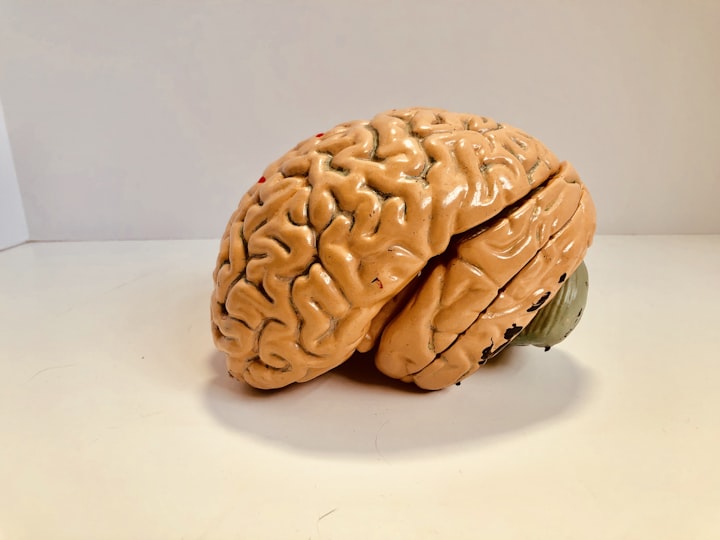Surviving a Rod Through the Head
The Rod Pierced Through With Confidence and Zero Mercy

You’ve heard of him, haven’t you? Phineas Gage. The railroad worker who survived an explosion that involved an iron rod piercing through his left cheek and out of his brain and skull.
Yeah.
I know.
You’re probably wondering “yeah, alright sweet. What about him?” Well, let’s just say that he was a really popular patient for the field of neuroscience (Cherry, par. 1). And what I found the most interesting about this tragic event was the science of his behavior afterward.

For those of you who don’t know much about Phineas Gage, let me fill you in with the help of my research.
Phineas Gage, 25 years old, was a railroad worker in Vermont. One day, at work, he was using an iron rod to handle explosive gun powder. As he was using the iron rod to handle the gun powder, an explosion suddenly occurred. The iron rod then went through his left cheek and brain. Fortunately, he survived and was able to talk and walk after the accident (Cherry, par. 2–3).
Why did people say that Phineas Gage was a “different person” after his accident? It actually has to do with neuroscience.

The iron rod went through his brain, in particular, it went through the frontal lobe of his brain. Does this mean that the frontal lobe of your brain has to do with the kind of person you are? To answer this question, we have to understand what the frontal lobe in our brain is responsible for.
Before talking about the frontal lobe, what are the lobes that make up the brain? The brain is made up of the parietal lobe, temporal lobe, occipital lobe, and the frontal lobe. The parietal lobe is mainly responsible for sensations like pain, temperature, vibration, touch, and pressure. The occipital lobe is responsible for vision. The temporal lobe is mainly responsible for memory, emotions, hearing, and comprehension of speech.
Our frontal lobes are responsible for many things. Some of them are higher-order thinking, personality, speech, motor movements, and decision making. Higher-order thinking means the daily activities you do involving your brain like calculating ahead or thinking what to say next or etc. Speech has two components. Specifically, it is the speech production that your frontal lobe is responsible for. Speech production is done by an area in your frontal lobe called the Broca's area. However, the comprehension of speech takes place in the Wernicke's area which is not in the frontal lobe, but in the temporal lobe.
Personality involves your average behavior over time or who you are as a person. For example, according to the five factor model of personality, one can be different levels of these five personality traits: Agreeableness, Conscientiousness, Extroversion, Neuroticism, and Openness. There are, however, many other theories as far as personality traits go. This explains why people who knew Phineas Gage said that he was a totally different person after the accident. Since the iron rod went through his frontal lobe, it means that his personality and thinking, as a whole, completely changed, making him seem like he was a whole different person due to the way he started acting.

This accident and the treatment of Phineas Gage actually played a big role in the field of neurology. His case helped scientists better understand the role of the frontal cortex of the brain (Cherry, par. 16–17).
Disclaimer: This is not the original article because the original article can be found here: https://medium.com/p/2e5d74db978
Bibliography
Cherry, Kendra. “The Famous Case of Phineas Gage’s Astonishing Brain Injury.” Phineas Gage’s Astonishing Brain Injury, Verywell Mind, 3 Oct. 2019, www.verywellmind.com/phineas-gage-2795244#targetText=The%20rod%20penetrated%20Gage's%20left,be%20seen%20by%20a%20doctor.
About the Creator
Rishav Sinha
I love medicine and I love writing about topics relating to science, medicine, mental health, personal development, fitness, and weight loss





Comments
There are no comments for this story
Be the first to respond and start the conversation.